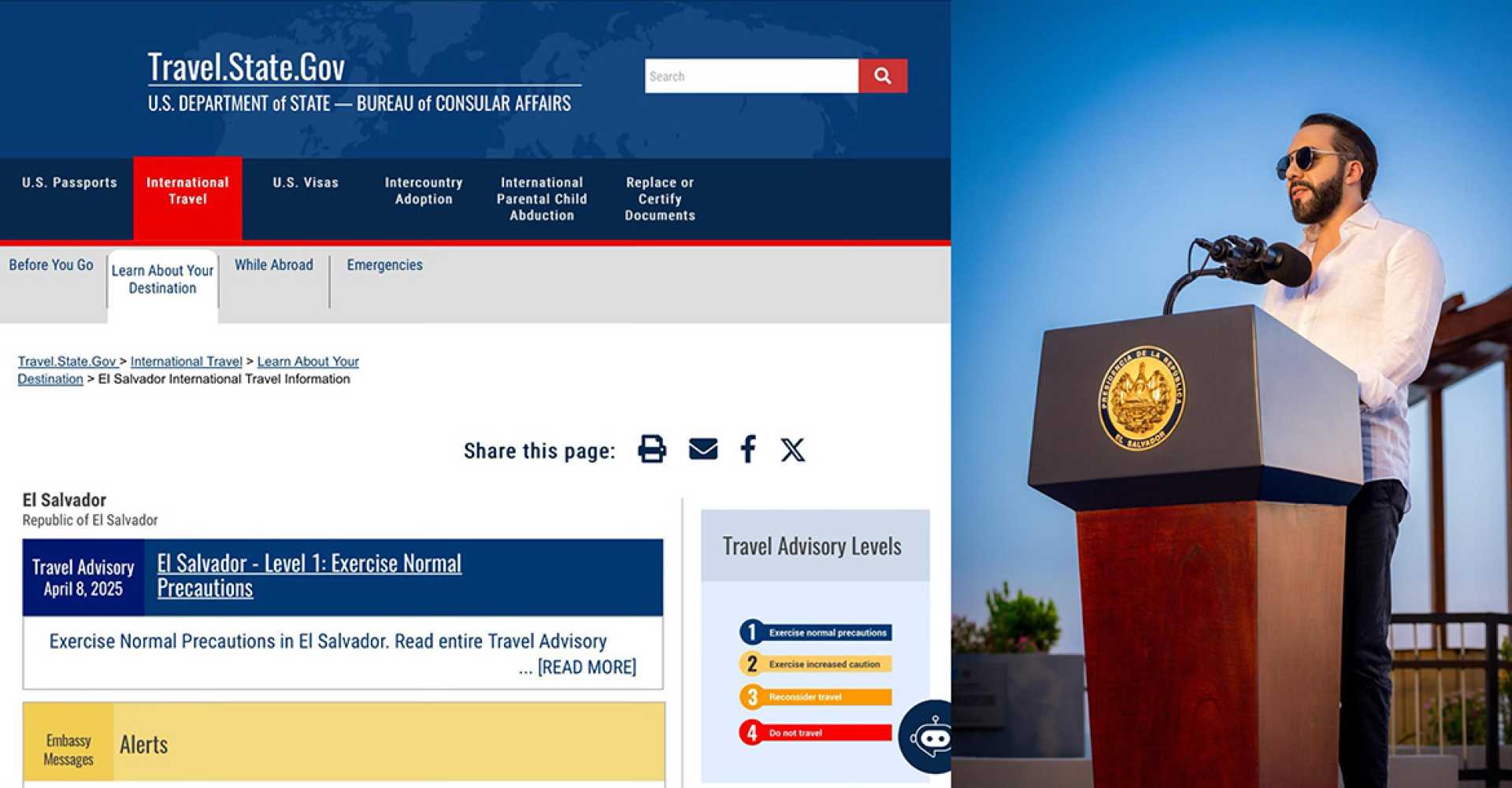World
U.S. Lowers Travel Advisory for El Salvador Amid Human Rights Concerns

WASHINGTON, D.C. — The United States State Department recently downgraded its travel advisory for El Salvador from a Level 2 to a Level 1, indicating that Americans can travel there with minimal precautions. This change comes as Salvadoran President Nayib Bukele prepares for a visit to the White House next week, despite ongoing human rights abuses under his regime.
On Tuesday, the State Department’s updated advisory, which signifies the lowest security risk, suggests that gang activity in El Salvador has diminished over the past three years, leading to a decline in violent crimes and murders. However, this perspective contrasts sharply with reports of human rights violations, where hundreds of immigrants have been imprisoned following expedited deportations from the U.S.
“Exercise normal precautions in El Salvador,” the advisory states, positioning the Central American country as safer for travel than numerous European nations, including France and the United Kingdom, which remain at Level 2.
The U.S. decision seemingly implies that President Trump’s administration supports Bukele’s hardline approach to crime, which has involved suspending civil rights and utilizing controversial detention practices. Critics assert that this alleged crackdown has led to harsh conditions for detainees and prison overcrowding.
According to a report by Bloomberg, the U.S. has rated El Salvador as a more secure destination than countries like France and Italy. This change reflects a broader stance of the current administration, which has consistently intensified its relationship with the Bukele regime. The Department of Homeland Security echoed these sentiments, asserting without a criminal record, individuals deported to El Salvador may still be gang members.
Critics, including various human rights organizations, have condemned the administration’s stance, raising alarms about the legality and humanitarian implications of deporting immigrants directly into environments known for violence and rights abuses.
In recent weeks, various legal battles have emerged surrounding the deportations. A Supreme Court ruling mandated that migrants targeted through the Alien Enemies Act must be notified and given the chance to contest their deportations, impacting procedural rights of immigrants involved.
Furthermore, the administration’s controversial approach to immigration enforcement was on full display during the annual Border Security Expo in Phoenix this week. Key officials, including acting ICE Director Todd Lyons, advocated for intensified collaboration with the private sector to enhance immigration operations, stating, “We need to buy more beds, we need more airplane flights.”
El Salvador has been the focal point of multiple challenges, with reports indicating that many deported individuals, including Kilmar Abrego Garcia, were sent back without adequate legal consideration of their status. Garcia’s case highlights systemic issues, as he was deported despite having legal protections against such actions.
The ongoing situation has sparked multiple legal disputes concerning jurisdiction and deportation processes, with Federal courts being called to assess cases concerning the rights of those detained without substantial evidence of wrongdoing. The legal community is left to navigate the complexities of jurisdiction across states, exacerbated by the governmental approaches to immigration enforcement.
Amidst the pivot in advisory levels, many advocates continue to voice concerns regarding the safety and well-being of those in Salvadoran prisons, questioning the quality of human rights safeguards under Bukele’s regime while calling for greater transparency and accountability regarding the treatment of deported migrants.












